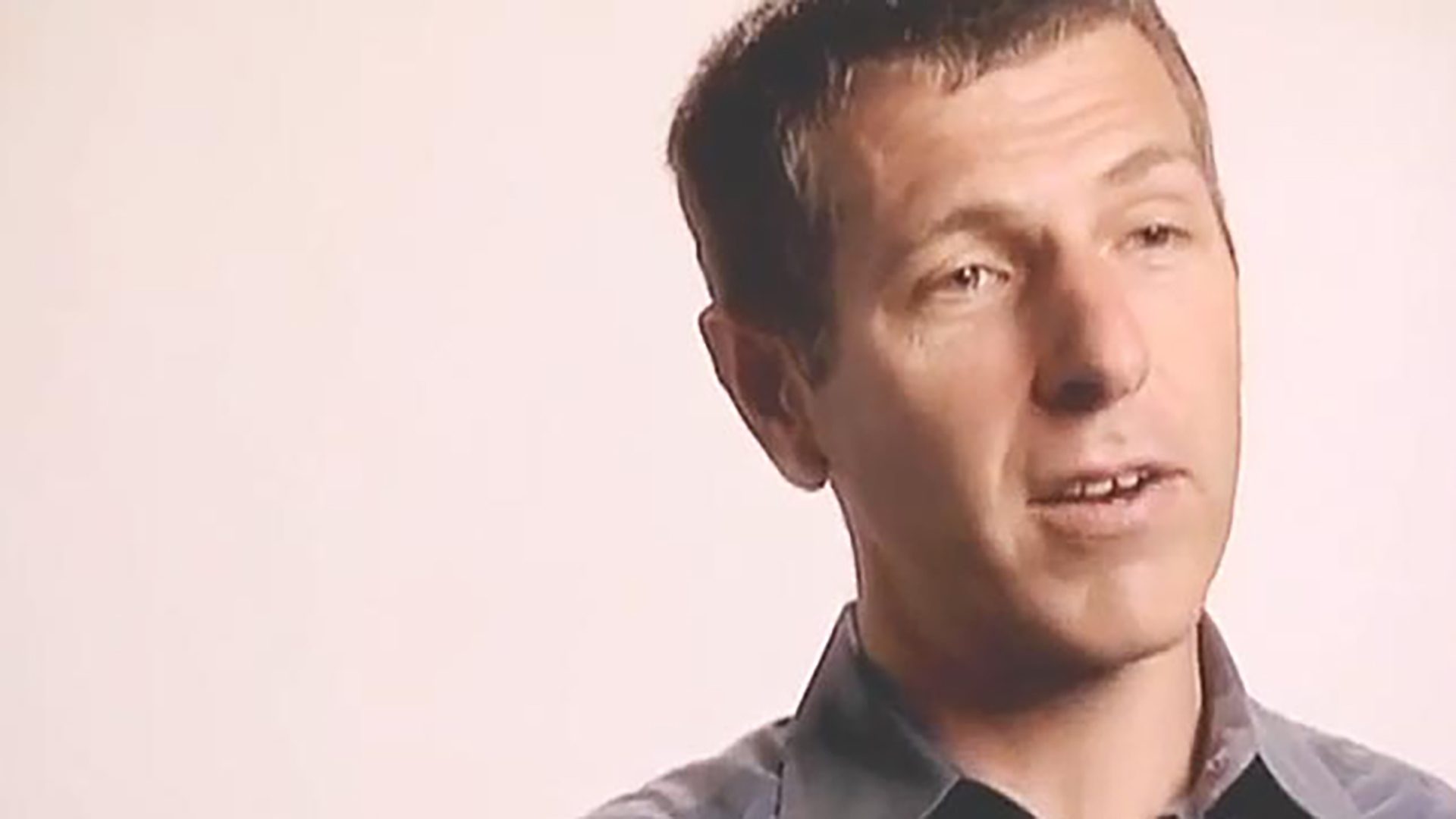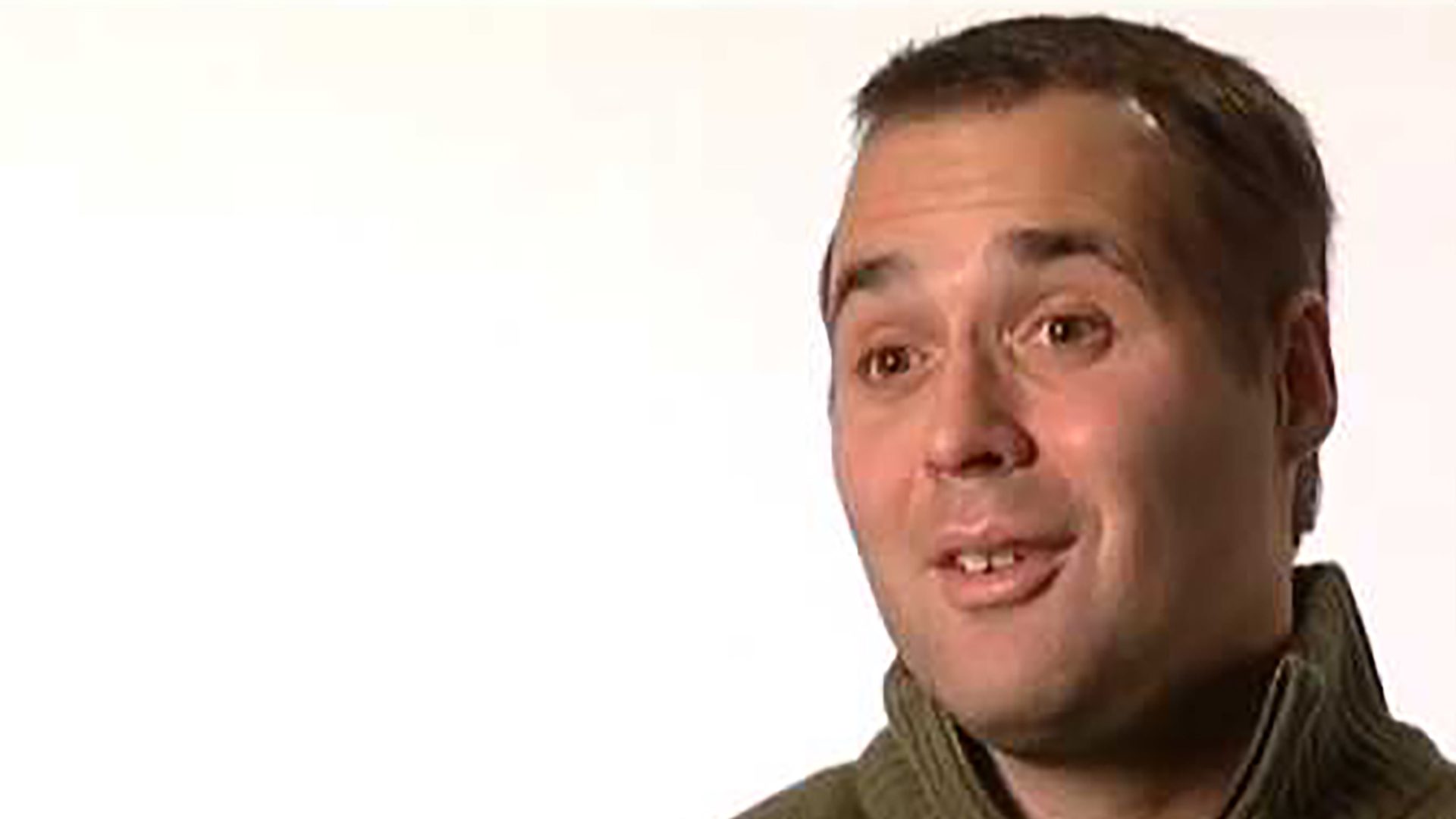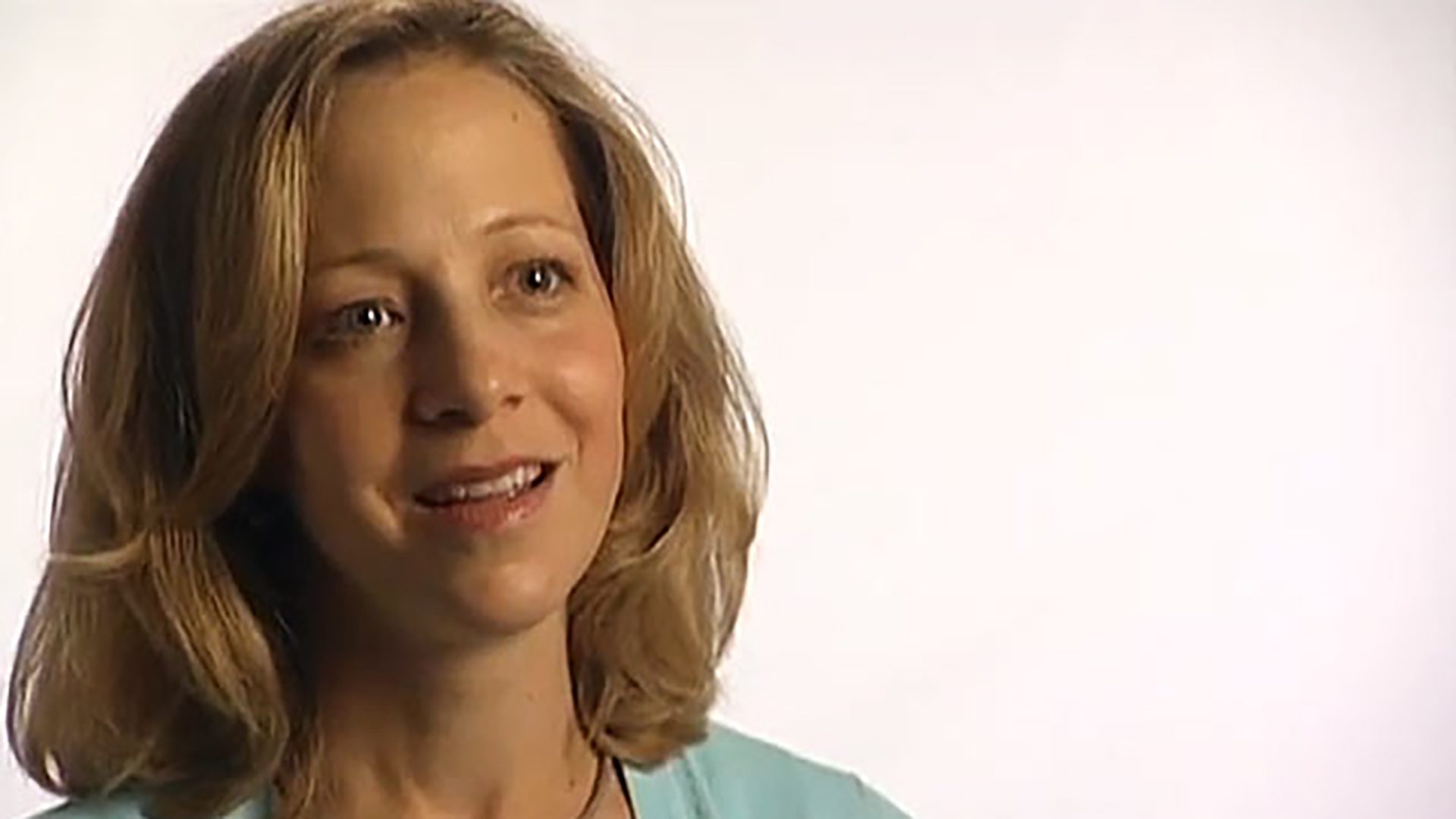Survivor Interview – Rick H.
Rick, a testicular cancer survivor, talks about telling his co-workers that he had cancer, how he dealt with his medical bills, and feelings about recurrence.

The cancer experience helped develop my philosophy of realizing that there’s a difference between what you could control and what you couldn’t control. I could control my attitude, and I could control the decisions that I was going to make, and I couldn’t control the outcome of the decisions. And I could always decide to make new decisions, and I could have the attitude that I would survive. Knowing what I really could control, so I could focus my energy on that, was helpful to me.
I tend to always have a little bit of doubt, a little bit of skepticism, and probe a little deeper than maybe other people might. I had very conflicting data between two doctors. Dramatically different. And here you are as a patient, and I think there’s a natural emotional desire to want to believe the first doctor you have.
To go that extra mile to find out, do you have the right information, while it’s difficult emotionally, it can have a big difference in the outcome of the treatment, which affects the survivorship experience. I think every doctor knows different things, and nobody knows everything. And there’s only one person that really is going to care above anybody else if you get better or not, and that’s you.
Don’t let other people tell you how you should feel. Know how you should feel. Know your attitude. And don’t let other people make critical decisions for you. All you can do is get yourself as educated as you can and try to figure out which doctors do you trust? Which ones do you believe are best equipped to give you the best advice for the disease that you have? Find other people that have gone through the situation like what you’re going through and learn from them, so that you can be prepared to make the decisions that you need to make.
You’ve got a responsibility to yourself, you have a responsibility to your family, you have a responsibility to everybody that depends upon your life to maximize your odds in this. And that means you have to put out the work. You’ve got to go and ask the hard questions. You’ve got to make yourself an expert in who the experts are and seek them out. And that’s what I did. And here I am five years later, I’m cured and very happy with the decisions that I made in the process. I’ve seen too many cases, where people that haven’t done that have had a very different outcome than they needed to have.
I looked at the illness in three phases. There’s the diagnosis, and then there’s the treatment, which also begins with the survivorship, which is the third phase that continues throughout. And each one leads to the next. You’ve got to make sure that you’re being treated in a way that’s gonna give you the best experience post-treatment. In my case, the bleomycin, which is not required, has side effects on the lungs. I’m a cyclist, and I like my lungs. They’re helpful. I wanted to minimize side effects that I’d have to deal with later on.
Time takes care of the fear of recurrence. For me, I tried to be close to the cancer community because I want to help people if I can. It seems like I always have friends that have friends or family members that are fighting the disease. I’m always working with people that are fighting it, so the reality that this can happen never goes away. And I don’t want it to go away, because it makes my life bigger. The fear goes away, though, and I can’t think exactly why and put the right words around that, but the fear does go away.
Returning to work was interesting. I’m in sales. And while I was out, there was a management change at the company. And I come back in and everybody was really happy to see me there. But the manager didn’t know where I was or why I was out, and it’s reasonable to expect, “Well, gee, were you on vacation?” I said, “No, I had cancer.” The room went silent.
And I realized the power of the word and that I needed to really be careful about it as a survivor dealing with others that are not as comfortable with cancer and the cancer community as I had become.
The other thing that happened returning to work is I found that people didn’t understand how the experience affected me. I think there was a common belief out there that you go through something like cancer, you want to stop and smell the roses. For me, it was very different. I wanted to speed up and smell the roses! There was just so much to do, and gee, how much time do you have? I wanted to get a lot more done in every single day than I did before I was sick. There’s perceptions out there that may be said and may be unsaid that sometimes come in. And I don’t know how to deal with it other than just be yourself and go ahead and make the most out of every day.
The amount of paperwork that came from the hospitals and the doctors for the treatment was mind-boggling. It was over $150,000 of bills, and then, of course, insurance companies have their own mysterious set of rules. Sometimes they’d pay for them, and sometimes they wouldn’t. Trying to figure it out was beyond what I or my wife could do, so we hired an insurance consultant, and that made it a whole lot easier. It was like having a tax planner do your taxes. I didn’t have to worry about it anymore. It saved a lot of headache, and I think it saved us a lot of money, too.
We need trusts. We need wills. We need all this stuff in order, because we’ve got two kids, and as much as you don’t want to think about it, there’s a possibility some of this stuff may have to kick in. So we started that, and I’ve been very good about making sure that paperwork is intact all the way through. I had the good fortune of having a very successful outcome in dealing with the disease, but, you know, there’s other accidents that can happen, too. I think it’s just responsible financial planning.
Cancer has expanded my capacity. It’s expanded my life. Professionally, I think things may have seemed more difficult before. While maybe not trivial now, they certainly have seemed a lot easier to deal with than some of the things that I’ve had to deal with going through cancer. My capacity to deal with difficult situations is much greater than it was before.
Working with others, staying close to the cancer community, has made my life much bigger, much more rich than it was before. I remember when I walked out of the hospital, it’s a trite saying, but I noticed colors of green that I didn’t know existed in the trees. The content of each day is much more rich than I think it was before and my capacity to care and empathize with people that are going through difficulties is probably much greater than it was before. And all of that goes to making my life bigger.
We’re all survivors. Not everybody has had the experience of cancer, like you or I have, but, you know, you go through that and then you realize that we’re all survivors. Before I was sick, I was mountain biking at the top of Moab and I felt really, really good. And then a month later, I didn’t feel so good. And I think knowing how short life could be and how important that time is, is something that can’t easily be taught.
Survivorship — it’s an expansive experience. It has just made my life so much bigger than it was before.
My name is Rick Hyman. I’m 48 years old, and I am a testicular cancer survivor.

